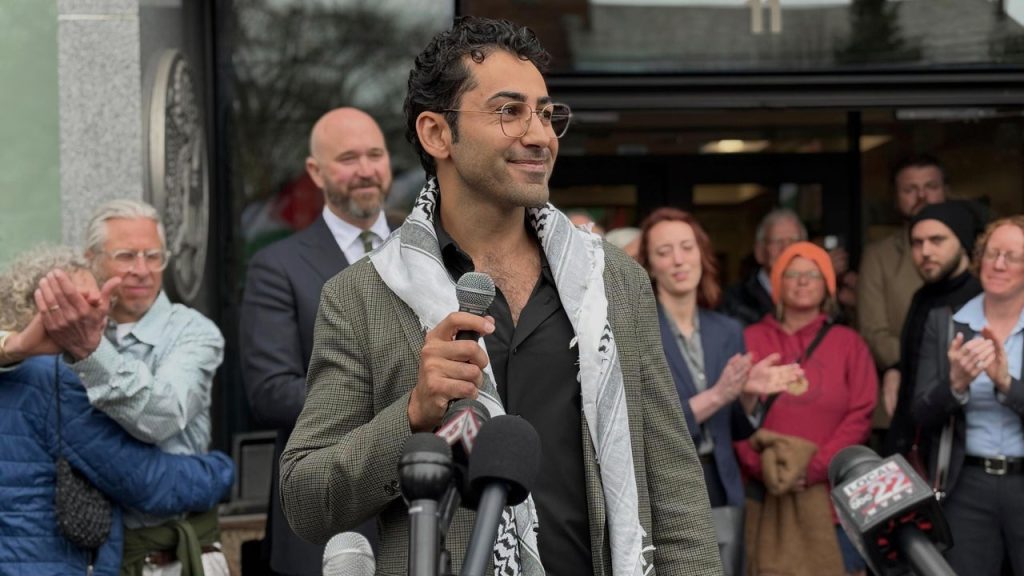A Palestinian student at Columbia University who was detained by immigration authorities earlier this month was released on Wednesday following a federal judge’s order, amid growing concerns over free speech and political retaliation.
Mohsen Mahdawi, a lawful U.S. permanent resident, was taken into custody on April 16 while attending a U.S. citizenship interview. His case drew national attention after his attorneys argued that the Trump administration sought to deport him in retaliation for his involvement in pro-Palestinian protests at Columbia University during the early stages of the Israel-Hamas war.
Speaking outside the courthouse in Burlington, Vermont, shortly after his release, Mahdawi said, “Yes, you might think I am free, but my freedom is interlinked with the freedom of many other students.”
Judge Geoffrey Crawford, who ordered Mahdawi’s release, also barred the federal government from removing him from the state or country. In his ruling, Crawford said Mahdawi had “made substantial claims that his detention is the result of retaliation for protected speech.” He drew historical parallels to the McCarthy era, when immigration laws were used to suppress political dissent during the Red Scare.
“This is not the first time the U.S. has seen chilling efforts by the government that are intended to shut down debate,” Crawford stated in court.
The Justice Department has said it will appeal the ruling, maintaining that Mahdawi’s detention was legally valid. U.S. Attorney Michael Drescher previously argued that deportation proceedings are constitutionally sound and that district courts should not interfere with immigration enforcement.
The government cited a provision of the Immigration and Nationality Act that allows for removal if the Secretary of State determines an individual’s presence poses “serious adverse foreign consequences.” Secretary of State Marco Rubio has invoked the same provision in other recent cases, including those of Columbia student Mahmoud Khalil and Tufts University student Rümeysa Öztürk, both currently detained in Louisiana. Rubio has publicly said he has revoked hundreds of visas of students involved in pro-Palestinian demonstrations, calling protestors “lunatics” and boasting, “Every time I find one of these lunatics, I take away their visa.”
The State Department has said its actions are aimed at curbing antisemitism. However, Mahdawi has firmly rejected those allegations. In an interview with CBS News a day before his arrest, he stated, “My compassion extends beyond the Palestinian people. My compassion is also for the Jewish people and for the Israelis as well.”
Mahdawi added that he had stepped back from protest organizing well before students began setting up encampments or occupying buildings on Columbia’s campus.
His immigration case remains active, with a new hearing scheduled for Thursday. His legal team continues to argue that the government’s actions are a violation of his First Amendment rights and a dangerous precedent in targeting political speech through immigration law.
As Mahdawi reunites with his community, his case has become a lightning rod in the broader debate over student activism, free expression, and the limits of government authority.



